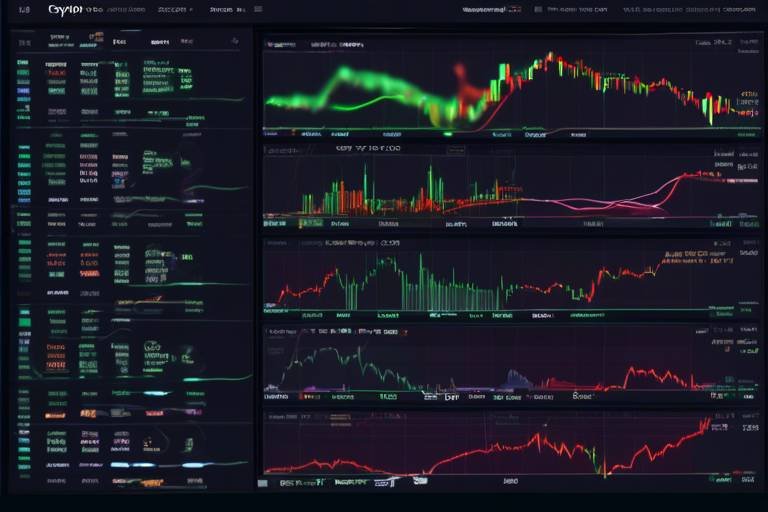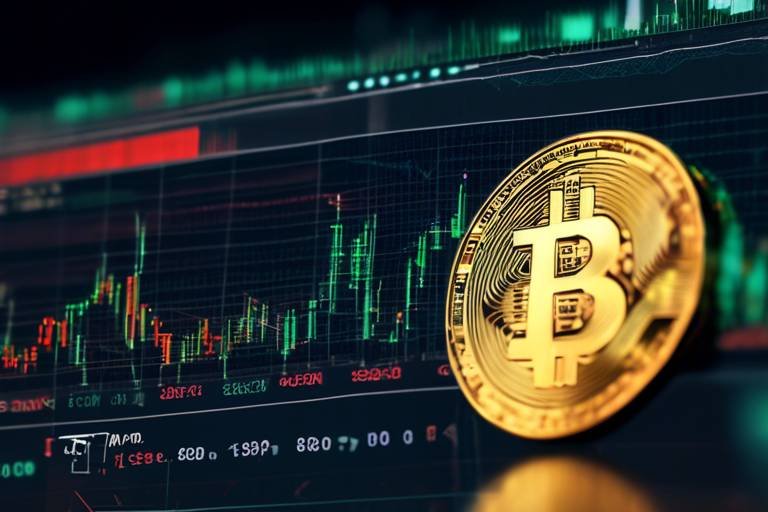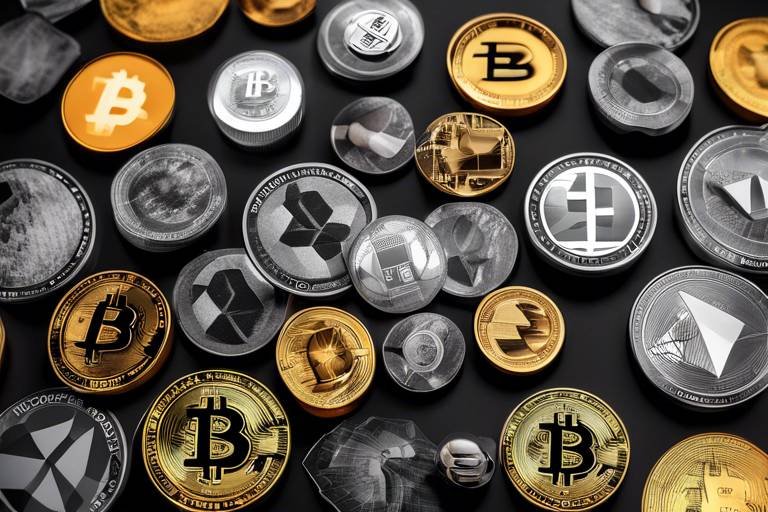The Impact of Global Events on Crypto Prices
In today's hyper-connected world, the cryptocurrency market is increasingly influenced by a variety of global events. From economic fluctuations to political unrest, these factors can lead to dramatic shifts in investor sentiment and, consequently, crypto prices. Imagine the crypto market as a vast ocean, with waves of news and events crashing against it, causing ripples that can either propel prices to new heights or drag them down into the depths. Understanding how these global events impact the cryptocurrency landscape is essential for investors looking to navigate this volatile terrain.
Economic indicators like inflation rates and employment statistics significantly affect crypto prices, as they influence investor confidence and market trends, leading to potential price surges or declines. For instance, when inflation rates soar, investors often look for alternative assets to hedge against the eroding value of fiat currencies. This is where cryptocurrencies come into play. They can serve as a digital safe haven, attracting investors and driving prices up. Conversely, if employment statistics show a downturn, it can create a sense of uncertainty, leading to panic selling and a subsequent drop in crypto prices.
Political unrest in various regions can lead to increased volatility in crypto markets, as investors seek safe-haven assets during uncertain times. When governments face instability, the traditional financial systems may falter, prompting individuals to turn to cryptocurrencies. This shift often results in significant price spikes as demand increases. However, the opposite can also occur; if a government takes a hard stance against cryptocurrencies, it can lead to a sharp decline in prices. The unpredictability of political landscapes makes it essential for investors to stay informed about global events.
Government regulations play a crucial role in shaping the cryptocurrency landscape. Changes in policy can either bolster market confidence or trigger widespread sell-offs, impacting prices significantly. For example, if a country announces favorable regulations, it can lead to a surge in investment and a subsequent price increase. On the flip side, stringent regulations or outright bans can create panic, causing prices to plummet. Investors need to be aware of the regulatory environment in different countries, as this can have immediate effects on their portfolios.
Tax implications for crypto transactions can deter or encourage investment. Favorable tax regulations, such as lower capital gains taxes on cryptocurrency profits, can boost prices as more investors enter the market. In contrast, stringent tax policies may lead to market declines, as investors may feel discouraged from trading. It's crucial for investors to understand the tax landscape in their respective countries, as this knowledge can significantly impact their investment strategies.
International sanctions can affect the accessibility and utilization of cryptocurrencies, influencing their demand and consequently impacting their market prices. When countries face sanctions, they may turn to cryptocurrencies as a means of circumventing traditional financial systems. This can lead to increased demand, driving prices up. However, if major exchanges or platforms are restricted from operating in sanctioned countries, it can lead to decreased accessibility and a drop in prices.
Market sentiment, driven by news and social media, can lead to rapid price changes in cryptocurrencies. Positive news, such as a major corporation adopting crypto payments, can create a buzz, leading to a surge in prices. Conversely, negative news, such as hacks or regulatory crackdowns, can trigger panic selling. The speed at which information spreads in today's digital age means that investor behavior can change almost overnight, making it essential for traders to stay updated with the latest news.
Technological advancements in blockchain and cryptocurrency can lead to increased adoption and market confidence. As new innovations emerge, they can attract a wider audience to the crypto space, driving prices up. For example, the development of faster transaction methods or improved security features can enhance user experience and trust, leading to greater investment. However, the market is not without its risks; security breaches in exchanges or wallets can lead to a loss of trust, causing significant price drops as investors react to perceived risks.
Security breaches in exchanges or wallets can lead to a loss of trust in cryptocurrencies. When investors hear about hacks or thefts, it creates a sense of fear and uncertainty, often resulting in significant price drops. It's a stark reminder that while cryptocurrencies promise decentralization and security, they are still vulnerable to attacks. Investors must remain vigilant and choose reputable platforms to safeguard their assets.
The rise of decentralized finance (DeFi) platforms is reshaping the crypto landscape. These platforms offer new opportunities for earning yields and trading, which can influence overall market prices and investor strategies. However, with new opportunities come new risks, as the DeFi space is still relatively unregulated. Investors must navigate this complex environment carefully, as trends in DeFi can lead to rapid price fluctuations in the broader crypto market.
Global economic events, such as recessions or trade agreements, can have profound effects on cryptocurrency prices. For example, in times of economic downturn, traditional markets may falter, leading investors to seek alternative assets like cryptocurrencies. Similarly, favorable trade agreements can boost investor confidence, leading to increased demand for digital currencies. Understanding these dynamics is crucial for anyone looking to invest in cryptocurrencies, as the interconnectedness of global events can create both opportunities and challenges.
- How do economic indicators affect cryptocurrency prices?
Economic indicators like inflation and employment rates can influence investor confidence, leading to price fluctuations in the crypto market.
- What role does political unrest play in crypto volatility?
Political unrest often drives investors toward safe-haven assets, including cryptocurrencies, which can lead to price spikes or drops.
- How can government regulations impact crypto investing?
Changes in government regulations can either encourage or deter investment, significantly affecting cryptocurrency prices.
- What are the implications of security breaches in the crypto market?
Security breaches can erode trust in cryptocurrencies, leading to panic selling and significant price declines.
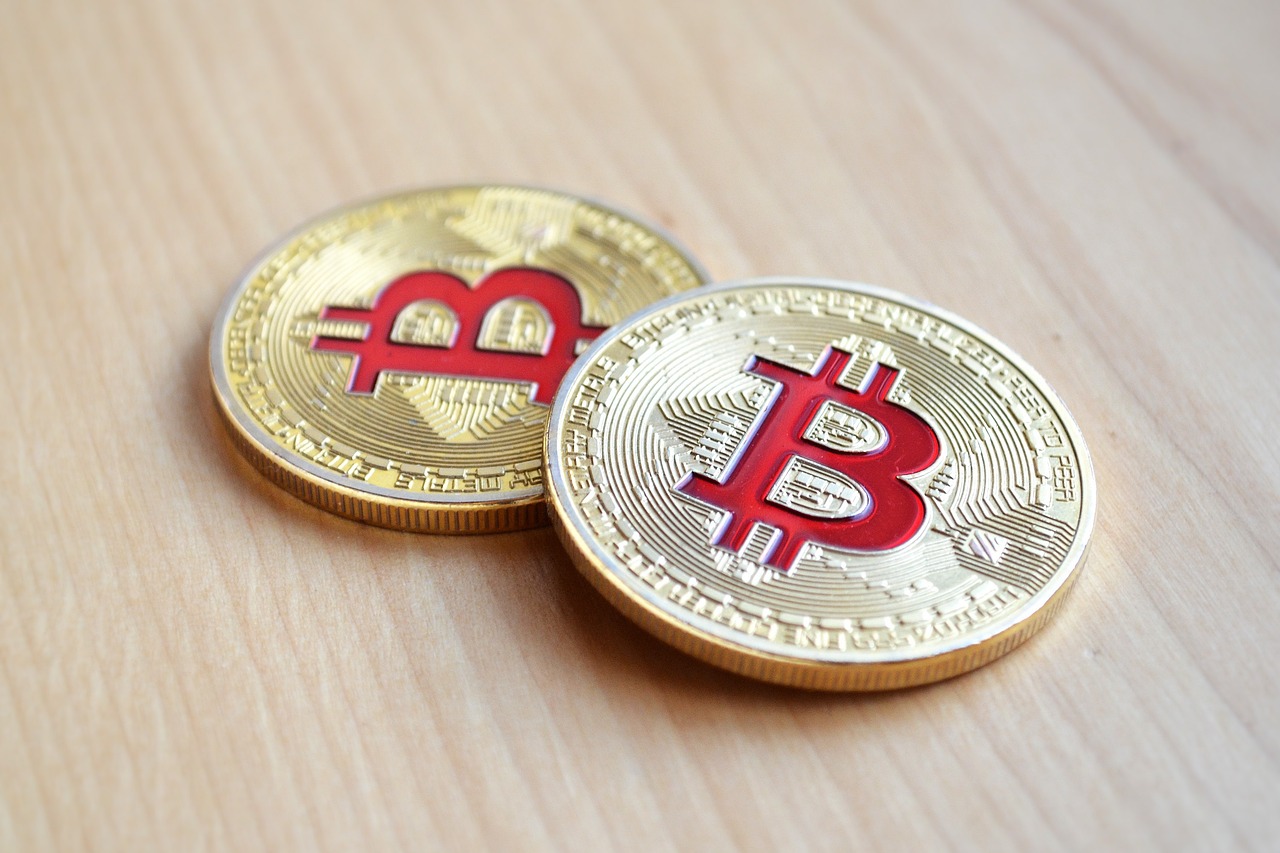
Economic Indicators
When we talk about the impact of economic indicators on cryptocurrency prices, it's like trying to predict the weather based on the clouds in the sky. These indicators, such as inflation rates, employment statistics, and GDP growth, serve as the clouds that can either signal a sunny day or an impending storm for the crypto market. For instance, when inflation rates rise, investors often seek alternative assets to hedge against the declining value of fiat currencies. This behavior can lead to a surge in demand for cryptocurrencies, driving their prices up.
Moreover, employment statistics can also play a pivotal role. High employment rates generally indicate a robust economy, which can boost investor confidence. When people feel secure in their jobs, they are more likely to invest in high-risk assets like cryptocurrencies. Conversely, if unemployment rises, fear and uncertainty can cause investors to retreat, leading to potential declines in crypto prices.
Another key economic indicator is the Gross Domestic Product (GDP). A growing GDP usually reflects a healthy economy, which can enhance market sentiment towards cryptocurrencies. Investors may feel more optimistic about the future and are likely to allocate more funds into the crypto space. On the flip side, a contracting GDP can trigger a wave of panic selling as investors look to minimize their losses.
To illustrate how these indicators correlate with crypto prices, consider the following table:
| Economic Indicator | Effect on Crypto Prices |
|---|---|
| Inflation Rate Increase | Potential Price Surge |
| High Employment Rates | Increased Investment |
| Rising GDP | Boost in Market Confidence |
| High Unemployment Rates | Price Decline |
| Contracting GDP | Panic Selling |
In conclusion, economic indicators are like a compass for investors in the cryptocurrency market. They provide essential insights into the broader economic landscape, helping investors make informed decisions. Understanding these indicators can give you an edge, allowing you to navigate the often turbulent waters of crypto investments with greater confidence.
- How do economic indicators affect cryptocurrency prices?
Economic indicators influence investor sentiment and behavior, which can lead to fluctuations in cryptocurrency prices. - What are some key economic indicators to watch?
Key indicators include inflation rates, employment statistics, and GDP growth. - Can a strong economy lead to higher crypto prices?
Yes, a strong economy often boosts investor confidence, leading to increased investment in cryptocurrencies. - What happens to crypto prices during economic downturns?
During downturns, investors may sell off assets, leading to declines in cryptocurrency prices.
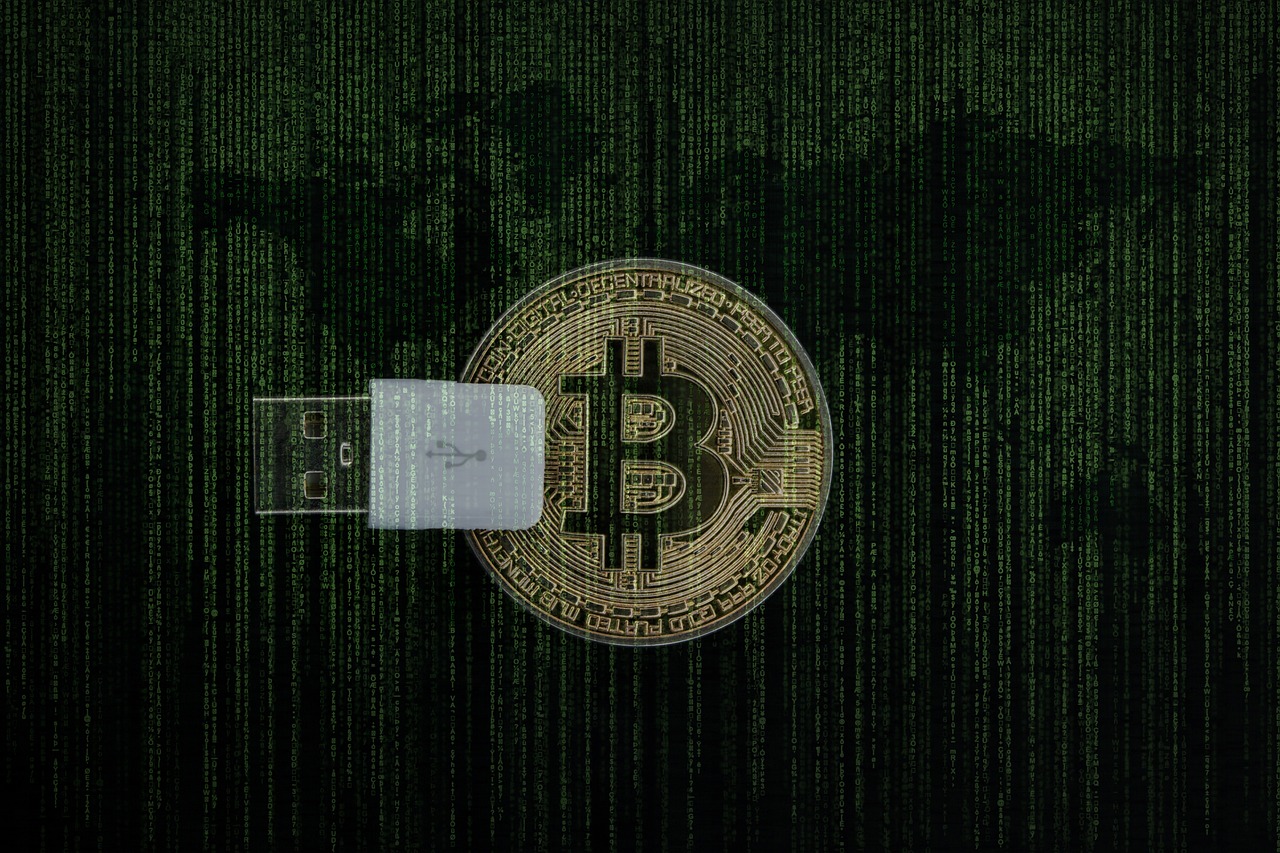
Political Unrest
When the world is in turmoil, whether due to protests, coups, or governmental changes, the effects ripple through every market, including cryptocurrencies. often leads to a surge in volatility as investors scramble to protect their assets. Just like a ship in a stormy sea, the crypto market can sway dramatically in response to the winds of political change. Investors often seek safe-haven assets during these uncertain times, and cryptocurrencies can sometimes fill that role, leading to unexpected price spikes.
For instance, when a country faces political instability, citizens may turn to cryptocurrencies as a means of preserving their wealth. This is especially true in nations where the local currency is rapidly devaluing due to inflation or governmental mismanagement. In such scenarios, the demand for cryptocurrencies can skyrocket, pushing prices higher. However, the opposite can also occur; if a government decides to crack down on crypto usage, the market can react negatively, leading to significant declines in prices.
Moreover, the global interconnectedness of financial markets means that unrest in one region can have implications worldwide. Consider the following scenarios:
- Protests and Civil Unrest: When citizens take to the streets, it can create fear and uncertainty, prompting investors to either flee to cryptocurrencies or sell off their holdings in response to potential government crackdowns.
- Government Overthrows: A sudden change in leadership can lead to rapid shifts in policy, affecting how cryptocurrencies are regulated and traded within that country.
- International Relations: Political tensions between countries can lead to sanctions that affect cryptocurrency exchanges, limiting access and driving prices down.
In summary, political unrest acts as a double-edged sword in the world of cryptocurrencies. It can either bolster demand and drive prices up or trigger panic selling, leading to significant declines. As investors, it’s crucial to stay informed about global events and understand how they might impact the crypto landscape. With the right knowledge, you can navigate these turbulent waters and make informed decisions that could protect your investments.
- How does political unrest specifically impact cryptocurrency prices? Political unrest can lead to increased volatility, with investors either seeking cryptocurrencies as a safe haven or selling off assets due to fear.
- Are cryptocurrencies always a safe haven during political turmoil? Not necessarily. While they can provide some protection, regulatory crackdowns or market panic can lead to significant price drops.
- What should investors watch for during times of political unrest? Keep an eye on news regarding government actions, protests, and international relations, as these can all influence market sentiment and prices.

Government Regulations
Government regulations play a crucial role in shaping the cryptocurrency landscape. Just like the weather can change the course of a journey, regulations can significantly influence the direction of the crypto market. When governments introduce new policies regarding digital currencies, they send ripples through the market that can either bolster investor confidence or trigger widespread panic. For instance, a country announcing a positive regulatory framework can lead to a surge in prices as investors flock to buy, eager to capitalize on the newfound legitimacy of cryptocurrencies. Conversely, a government imposing strict regulations or outright bans can result in a swift decline in prices, as investors rush to sell off their assets to avoid losses.
The impact of government regulations can be categorized into several key areas:
- Market Confidence: Regulations that promote transparency and security can enhance trust among investors, leading to increased market participation.
- Investment Flow: Favorable regulations can attract institutional investors, bringing substantial capital into the crypto space.
- Compliance Costs: Stricter regulations may impose additional costs on businesses, which can affect their profitability and, in turn, the market.
One notable example is the regulatory stance taken by the United States. When the SEC (Securities and Exchange Commission) began to clarify its position on initial coin offerings (ICOs) and securities laws, it created a more stable environment for investors. This clarity often leads to a bullish sentiment in the market, as investors feel more secure in their investments. However, when the SEC has taken enforcement actions against companies for non-compliance, it has caused significant price drops, showcasing the direct correlation between regulatory actions and market performance.
Moreover, the implications of tax regulations cannot be overlooked. Governments worldwide are still figuring out how to tax cryptocurrencies effectively. In some regions, favorable tax treatment has encouraged more people to invest in crypto, leading to price increases. For example, countries that do not tax capital gains on crypto trading have seen a surge in trading volume and price appreciation. On the other hand, stringent tax policies can deter investment, leading to market declines as traders become hesitant to engage in transactions that could incur hefty tax liabilities.
In conclusion, government regulations are a double-edged sword in the cryptocurrency market. They can either pave the way for growth and innovation or create barriers that stifle market activity. As the global landscape continues to evolve, the influence of regulations will remain a pivotal factor in determining the future of cryptocurrency prices. Investors must stay informed about regulatory changes and adapt their strategies accordingly to navigate this complex environment.
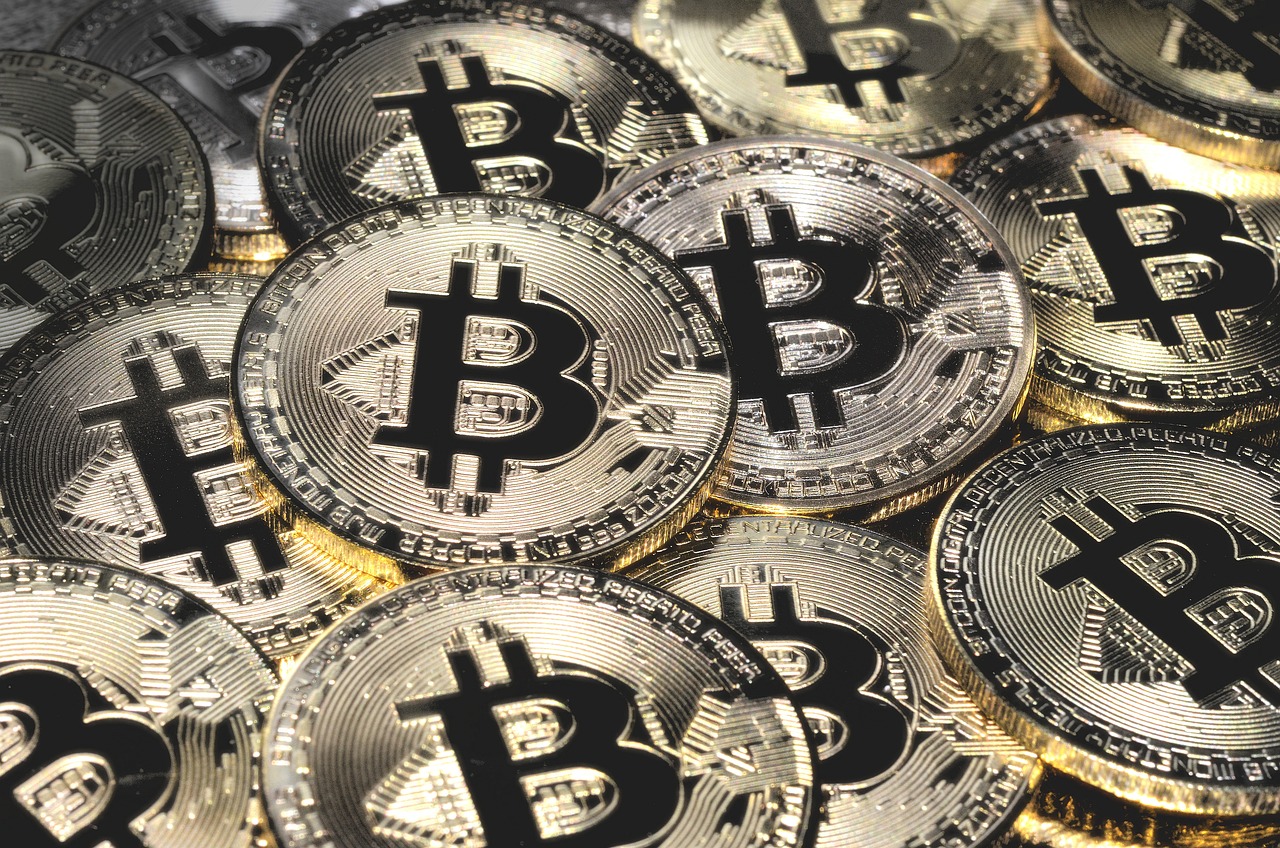
Tax Implications
The world of cryptocurrency is as thrilling as it is complex, and one of the most significant factors that can sway investor interest is the associated with crypto transactions. In many countries, the way cryptocurrencies are taxed can either act as a magnet for investments or serve as a deterrent. For instance, when tax policies are favorable, they can encourage more individuals to dive into the crypto space, leading to increased demand and, consequently, a rise in prices. Conversely, stringent tax regulations can create a chilling effect, causing potential investors to shy away and existing holders to sell off their assets to avoid future liabilities.
To illustrate how tax implications can vary, consider the following examples of different countries' approaches to taxing cryptocurrencies:
| Country | Tax Treatment | Impact on Investors |
|---|---|---|
| United States | Cryptos are treated as property; capital gains tax applies. | Investors must track their transactions, which can be burdensome. |
| Germany | No tax on profits if held for over a year. | Encourages long-term holding and investment. |
| Singapore | No capital gains tax on cryptocurrencies. | Attracts many investors and businesses to the crypto market. |
As you can see, the tax landscape can significantly influence how individuals approach their investments. In countries like Germany and Singapore, where the tax implications are more favorable, we often see a vibrant crypto community flourishing. On the other hand, in places like the United States, the requirement to report every transaction can deter casual investors from participating in the market, as they may find the tax burden overwhelming.
Moreover, the evolving nature of tax regulations means that investors must stay informed about any changes that could impact their holdings. For instance, if a government decides to impose harsher taxes on crypto transactions, it could lead to a sudden sell-off, causing prices to plummet as panic sets in among investors. This is why understanding the tax implications is not just a matter of compliance; it's a crucial element of investment strategy.
In summary, the of cryptocurrency transactions can have profound effects on market dynamics. By fostering a conducive tax environment, governments can encourage investment and innovation in the crypto space, while overly burdensome regulations can stifle growth and deter potential investors. As the landscape continues to evolve, staying abreast of these changes will be vital for anyone involved in the cryptocurrency market.
- What are the tax implications of selling cryptocurrencies? Selling cryptocurrencies typically incurs capital gains tax, which varies by country based on how long you held the asset.
- Do I need to report cryptocurrency transactions on my taxes? Yes, in most jurisdictions, you are required to report any gains or losses from cryptocurrency transactions.
- How can I minimize my tax liability on crypto investments? Holding your assets for longer periods, utilizing tax-advantaged accounts, and staying informed on tax regulations can help minimize tax liabilities.

International Sanctions
International sanctions can play a pivotal role in shaping the cryptocurrency market. When countries face sanctions, whether due to political disagreements, human rights violations, or other diplomatic issues, the accessibility and utilization of cryptocurrencies often come into question. These sanctions can lead to a surge in demand for cryptocurrencies as individuals and businesses look for ways to circumvent traditional financial systems that may be restricted. In essence, cryptocurrencies can serve as a lifeline for those in nations facing economic isolation.
For instance, countries like Venezuela and Iran have seen a rise in cryptocurrency adoption as a response to severe economic sanctions. In these scenarios, the local populations turn to cryptocurrencies to protect their wealth and conduct transactions that would otherwise be hindered by the sanctions. This increased demand can lead to price spikes in specific cryptocurrencies, especially those that are perceived as more secure or versatile. However, it's essential to note that the impact of sanctions is not uniform across all cryptocurrencies. Some might benefit more than others, depending on their technology, community support, and the perception of their legitimacy.
Moreover, the implications of international sanctions extend beyond just the countries directly affected. The global cryptocurrency market can experience volatility as investors react to news surrounding these sanctions. For example, if a major economy imposes sanctions on a nation, traders might speculate on how this will affect the overall market, leading to rapid price fluctuations. This creates an environment where investor sentiment can shift quickly, resulting in both opportunities and risks.
To illustrate the impact of international sanctions on cryptocurrency prices, consider the following table:
| Country | Type of Sanction | Impact on Cryptocurrency Adoption |
|---|---|---|
| Venezuela | Economic Sanctions | Increased adoption of Bitcoin and Petro |
| Iran | Trade Sanctions | Growth in Ethereum usage for transactions |
| North Korea | Comprehensive Sanctions | Rising interest in Monero for privacy |
Ultimately, international sanctions create a complex interplay between political dynamics and market behavior. As the world becomes more interconnected, the influence of sanctions on cryptocurrency prices will likely grow, making it essential for investors to stay informed about global events and their potential implications. Understanding how these factors intertwine can help investors make more educated decisions in a rapidly evolving market.
- What are international sanctions? International sanctions are measures imposed by countries or international organizations to restrict trade and other economic activities with specific nations.
- How do sanctions affect cryptocurrency prices? Sanctions can lead to increased demand for cryptocurrencies in affected countries as residents seek alternative means for transactions.
- Are all cryptocurrencies equally affected by sanctions? No, the impact varies depending on the cryptocurrency's technology, community support, and perceived legitimacy.
- Can sanctions lead to price volatility in the crypto market? Yes, news of sanctions can cause rapid price changes as investors react to potential impacts on market dynamics.

Market Sentiment
Market sentiment is like the weather in the crypto world; it can change in an instant, impacting prices dramatically. Just think about it—one tweet from a prominent figure or a breaking news story can send prices soaring or plummeting. This phenomenon is largely driven by collective emotions and perceptions of investors. When the mood is optimistic, we often see a bull market, where prices rise as more investors jump in, hoping to capitalize on the upward trend. Conversely, during periods of fear or uncertainty, a bear market can emerge, leading to panic selling and significant price drops.
One of the most fascinating aspects of market sentiment is how quickly it can shift. For instance, a positive announcement regarding a major partnership or technological advancement can lead to a surge in buying activity. Investors, driven by the fear of missing out (FOMO), rush to purchase assets, pushing prices even higher. On the flip side, negative news—such as regulatory crackdowns or security breaches—can trigger a swift exit from the market, as investors scramble to minimize their losses.
Social media plays a crucial role in shaping market sentiment. Platforms like Twitter and Reddit are often buzzing with discussions about the latest trends, news, and rumors. The influence of influencers cannot be underestimated; a single post from a well-known figure can sway public opinion and, consequently, market prices. This is why keeping an eye on social media sentiment is vital for anyone looking to navigate the volatile waters of cryptocurrency investing.
Moreover, various metrics can help gauge market sentiment. For example, the Fear and Greed Index is a popular tool that quantifies the emotions driving market behavior. It ranges from extreme fear to extreme greed, providing insights into whether the market is overbought or oversold. Understanding these indicators can empower investors to make more informed decisions, potentially capitalizing on market fluctuations.
In summary, market sentiment is a powerful force in the cryptocurrency realm. It can create opportunities for profit but also expose investors to significant risks. By staying informed and attuned to the emotional landscape of the market, investors can better navigate the unpredictable nature of cryptocurrency prices.
- What is market sentiment? Market sentiment refers to the overall attitude of investors toward a particular market or asset, influenced by emotions and perceptions.
- How does market sentiment affect cryptocurrency prices? Positive sentiment can lead to price increases as more investors buy in, while negative sentiment can cause prices to drop as investors sell off their assets.
- What tools can I use to measure market sentiment? Tools like the Fear and Greed Index and social media analysis can help gauge market sentiment.
- Can market sentiment change quickly? Yes, market sentiment can shift rapidly due to breaking news, social media trends, or influential figures making statements.

Technological Advancements
In the fast-paced world of cryptocurrency, play a pivotal role in shaping market dynamics. As new innovations emerge, they not only enhance the functionality of cryptocurrencies but also significantly impact investor sentiment and market confidence. Imagine a world where transactions are instantaneous and secure, all thanks to cutting-edge blockchain technology. This is not just a dream; it's a reality that is evolving right before our eyes.
One of the most notable advancements has been the development of smart contracts. These self-executing contracts with the terms of the agreement directly written into code have revolutionized the way transactions are conducted. They eliminate the need for intermediaries, reducing costs and increasing efficiency. Consequently, the rise of platforms like Ethereum has spurred investor interest, leading to increased demand and, ultimately, price surges. As more businesses adopt these technologies, the potential for widespread use becomes even more attractive.
Additionally, the emergence of Layer 2 solutions has addressed the scalability issues faced by many cryptocurrencies. These solutions, such as the Lightning Network for Bitcoin and various rollups for Ethereum, allow for faster transactions and lower fees. This improvement not only enhances user experience but also encourages more people to participate in the crypto ecosystem. When users feel confident that they can transact quickly and affordably, they are more likely to invest, driving prices upward.
Another exciting development is the integration of Artificial Intelligence (AI) into trading strategies. AI algorithms can analyze vast amounts of data at lightning speed, identifying trends and making predictions that humans might miss. This capability enables traders to make informed decisions and react swiftly to market changes. As AI continues to evolve, its influence on trading strategies will likely grow, potentially leading to increased volatility as more traders enter the market with sophisticated tools.
Moreover, the rise of Decentralized Finance (DeFi) platforms has opened up a new frontier for investors. These platforms allow users to lend, borrow, and earn interest on their cryptocurrency holdings without relying on traditional financial institutions. The appeal of DeFi lies in its promise of greater returns and increased accessibility. However, with these opportunities come risks, such as smart contract vulnerabilities and regulatory uncertainties. As DeFi continues to develop, it will undoubtedly influence overall market prices and investor strategies.
It's also worth noting that the ongoing development of privacy coins has sparked interest among investors who prioritize anonymity. Cryptocurrencies like Monero and Zcash offer enhanced privacy features, appealing to those who seek to protect their financial information. As discussions around data privacy and surveillance intensify, the demand for these privacy-focused cryptocurrencies may rise, impacting their market prices.
In conclusion, technological advancements are not just trends; they are fundamental shifts that redefine the cryptocurrency landscape. As we continue to witness innovations in blockchain technology, smart contracts, AI integration, and DeFi, the potential for price fluctuations remains high. Investors must stay informed and adaptable, as the crypto market is as much about technology as it is about finance.
- What are smart contracts?
Smart contracts are self-executing contracts with the terms of the agreement directly written into code, allowing for automated transactions without intermediaries. - How do Layer 2 solutions work?
Layer 2 solutions enhance the scalability of cryptocurrencies by enabling faster transactions and reducing fees, improving overall user experience. - What is DeFi?
Decentralized Finance (DeFi) refers to financial services built on blockchain technology that allow users to lend, borrow, and earn interest without traditional banks. - Why are privacy coins gaining popularity?
Privacy coins offer enhanced anonymity for transactions, appealing to users concerned about data privacy and surveillance.
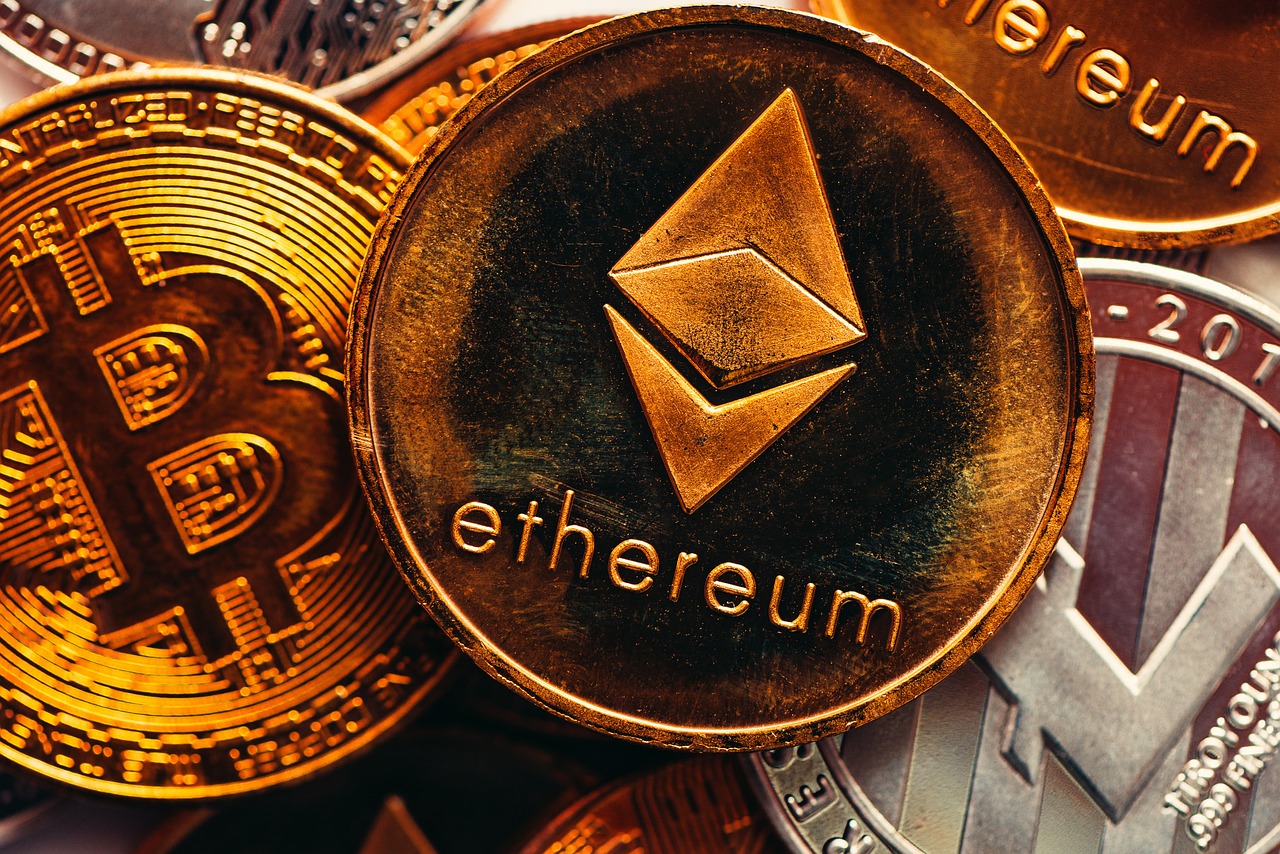
Security Breaches
In the fast-paced world of cryptocurrencies, can send shockwaves through the market, causing panic among investors and leading to significant price drops. Imagine waking up to the news that a major cryptocurrency exchange has been hacked, with millions of dollars worth of digital assets stolen. This scenario not only shakes the confidence of current investors but also deters potential newcomers from entering the market.
When a security breach occurs, it often leads to a rapid sell-off as investors rush to protect their assets. The fear of losing money can be overwhelming, prompting many to liquidate their holdings at any price. This behavior creates a domino effect, where the initial panic triggers further declines in prices. For instance, after the infamous Mt. Gox hack in 2014, Bitcoin's value plummeted from around $1,000 to about $400 in just a few months.
Additionally, the aftermath of a security breach can lead to stricter regulations and increased scrutiny from governments and regulatory bodies. These changes can further impact market dynamics, as new rules may either enhance security measures or stifle innovation. Investors often find themselves in a precarious position, weighing the risks of holding onto their cryptocurrencies against the potential for future gains.
To illustrate the impact of security breaches, let’s look at some notable incidents:
| Date | Exchange | Amount Lost (USD) | Impact on Bitcoin Price |
|---|---|---|---|
| February 2014 | Mt. Gox | $450 million | Drop from $1,000 to $400 |
| January 2018 | Coincheck | $530 million | Drop from $20,000 to $6,000 |
| September 2020 | KuCoin | $275 million | Drop from $10,800 to $10,200 |
As we can see, the correlation between security breaches and price volatility is undeniable. Investors must remain vigilant and take proactive steps to secure their assets, such as using hardware wallets and enabling two-factor authentication. The crypto market is still in its infancy, and while it offers exciting opportunities, it also comes with its fair share of risks.
Ultimately, the lesson here is clear: security is paramount in the cryptocurrency world. As technology evolves, so too must our approaches to safeguarding our investments. The future of crypto may be bright, but it is crucial to navigate this landscape with caution and awareness.
- What should I do if I suspect a security breach?
If you suspect a security breach, immediately secure your accounts by changing passwords and enabling two-factor authentication. Monitor your accounts closely for any suspicious activity. - How can I protect my cryptocurrency investments?
Use hardware wallets for long-term storage, enable two-factor authentication, and be cautious about sharing personal information online. - Are all exchanges equally secure?
No, not all exchanges have the same level of security. Research the exchange's history and security measures before investing.
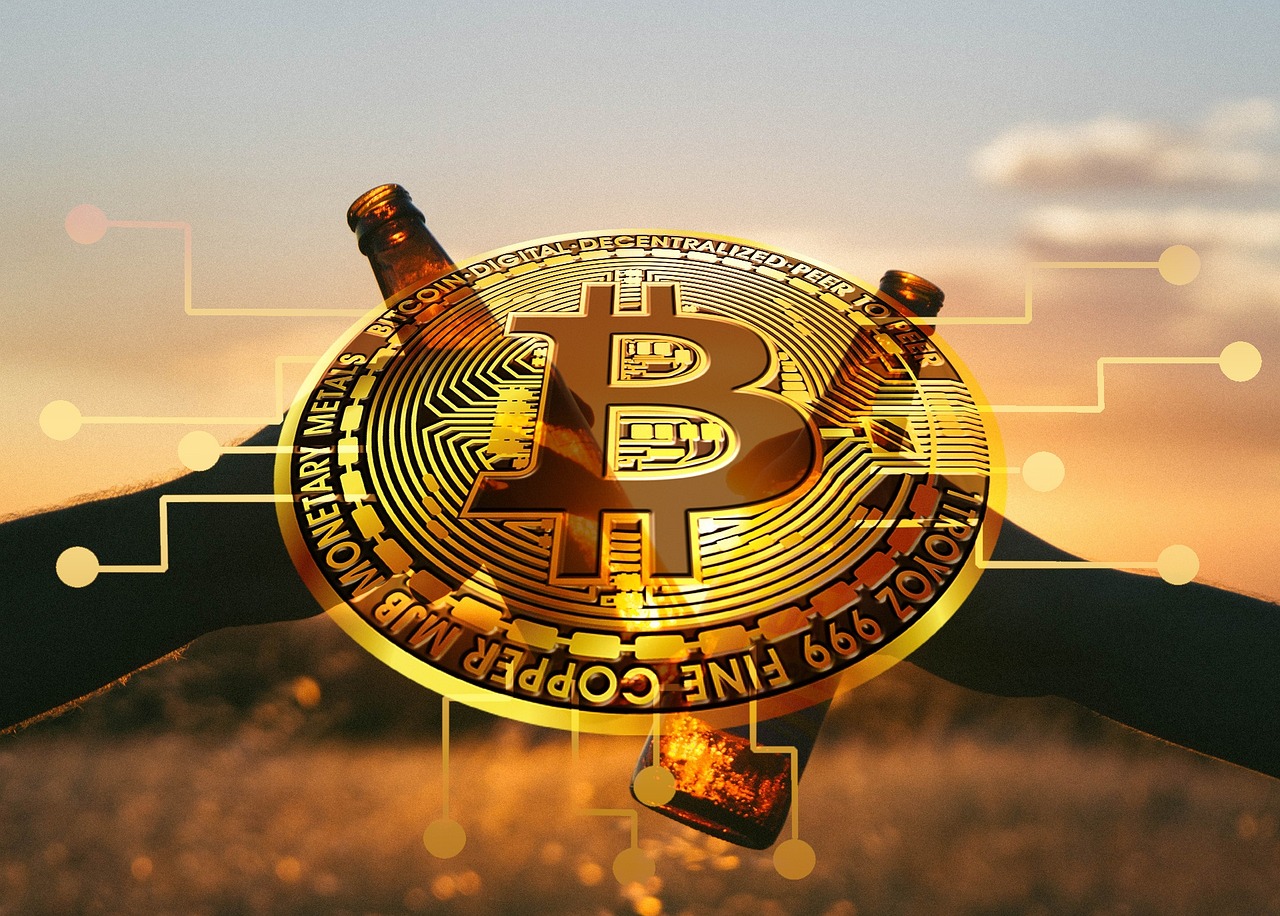
Decentralized Finance (DeFi) Trends
Decentralized Finance, or DeFi, has taken the cryptocurrency world by storm, reshaping traditional financial systems and offering new avenues for investment. Imagine a world where you can lend, borrow, and trade without the interference of banks or financial institutions. That’s the essence of DeFi! It operates on blockchain technology, allowing users to engage in financial transactions directly with one another, which not only reduces costs but also increases accessibility. This shift is akin to moving from a crowded highway to a scenic back road, where you can navigate freely without the usual traffic jams.
One of the most exciting trends in DeFi is the emergence of yield farming. This practice allows users to earn rewards by providing liquidity to various platforms. Think of it as planting seeds in a garden; the more you invest, the more you can potentially harvest. However, just like any garden, the environment matters. Market conditions, regulatory changes, and technological advancements can significantly influence the success of yield farming ventures.
Moreover, the rise of liquidity pools has transformed how assets are traded. These pools are collections of funds locked in smart contracts that facilitate trading without the need for traditional order books. Imagine a large communal pot where everyone contributes; the more liquidity in the pot, the easier it is for everyone to make trades without significant price impacts. This democratization of finance not only empowers individual investors but also attracts institutional players looking to capitalize on the growing DeFi ecosystem.
However, with great opportunity comes great risk. The DeFi space is still relatively young, and security breaches are a real concern. Just as a wise gardener protects their plants from pests, investors must be vigilant about the platforms they choose to engage with. Recent hacks and exploits have led to substantial losses, causing many to question the safety of their investments. This volatility can lead to rapid price changes, making it crucial for investors to stay informed and cautious.
As we look to the future, the integration of DeFi with traditional finance is on the horizon. Many experts believe that we might soon see a hybrid model where the best of both worlds coexist. This could include partnerships between DeFi platforms and established financial institutions, creating a seamless experience for users. Picture a bridge connecting two islands—one representing traditional finance and the other DeFi—allowing for the free flow of resources and ideas.
In conclusion, the trends in decentralized finance are not just shaping the future of cryptocurrency; they are revolutionizing the entire financial landscape. Whether you’re a seasoned investor or a curious newcomer, understanding the dynamics of DeFi can provide valuable insights into the ever-evolving world of digital assets.
- What is DeFi? DeFi stands for Decentralized Finance, which refers to financial services that operate on blockchain technology without intermediaries like banks.
- How does yield farming work? Yield farming allows users to earn rewards by providing liquidity to DeFi platforms, similar to earning interest on savings.
- What are liquidity pools? Liquidity pools are collections of funds locked in smart contracts that facilitate trading on decentralized exchanges.
- Are DeFi platforms safe? While many DeFi platforms are secure, risks such as hacks and exploits exist, so it's essential to conduct thorough research before investing.
- Will DeFi replace traditional finance? While DeFi is growing rapidly, it is likely to coexist with traditional finance, creating a hybrid model that leverages the strengths of both systems.

Global Economic Events
Global economic events are like the weather for the cryptocurrency market; they can change rapidly and have a profound impact on prices. Just imagine waking up to news of a major recession or a groundbreaking trade agreement—these events can send shockwaves through the financial world, influencing how investors perceive cryptocurrencies. For instance, during times of economic uncertainty, many investors flock to cryptocurrencies as a safe haven, similar to how people might rush to buy gold when the stock market is in turmoil. This shift in investor behavior can lead to significant price fluctuations, either soaring or plummeting based on the prevailing sentiment.
One of the most notable examples of this phenomenon occurred during the COVID-19 pandemic. As global economies faced lockdowns and uncertainty, many turned to cryptocurrencies as a hedge against inflation and currency devaluation. The price of Bitcoin, for instance, surged dramatically during this period, demonstrating how global economic events can create both opportunities and risks for investors. Such instances highlight the intricate relationship between traditional economic indicators and the crypto market.
Another critical factor to consider is how international trade agreements can open up new markets for cryptocurrencies. When countries agree to trade without tariffs, it can lead to increased adoption of digital currencies, as businesses and consumers find it easier to transact across borders. Conversely, trade wars or sanctions can limit access to cryptocurrencies, leading to reduced demand and lower prices. For example, when the U.S. imposed sanctions on certain countries, the local demand for cryptocurrencies surged as individuals sought alternatives to traditional banking systems. This dynamic illustrates how global economic events can create a ripple effect in the crypto landscape.
To further illustrate the impact of global economic events on cryptocurrency prices, let’s take a look at a simplified table showing some key events and their potential effects:
| Economic Event | Impact on Crypto Prices |
|---|---|
| Recession | Increased demand for safe-haven assets, leading to price surges |
| Trade Agreements | Greater adoption and market access, potentially boosting prices |
| Inflation Rates | Higher inflation may drive investors to cryptocurrencies as a hedge |
| Sanctions | Increased local demand for crypto as an alternative to traditional finance |
Additionally, it's essential to recognize the role of social media and news outlets in shaping public perception during these global economic events. A single tweet or article can sway investor sentiment dramatically, leading to rapid price changes. For instance, if a prominent figure in finance endorses a cryptocurrency during a time of economic crisis, it can lead to a surge in interest and investment, driving prices up. On the flip side, negative news can trigger panic selling, leading to sharp declines.
In conclusion, global economic events serve as a significant catalyst for cryptocurrency price movements. Investors must remain vigilant and informed about these events, as they can create both opportunities and risks in the ever-evolving crypto landscape. Understanding this dynamic is crucial for anyone looking to navigate the complexities of cryptocurrency investment.
- How do global economic events affect cryptocurrency prices? - Global economic events can lead to changes in investor behavior, influencing supply and demand dynamics in the crypto market.
- What role does social media play in cryptocurrency price fluctuations? - Social media can rapidly spread news and sentiment, leading to quick shifts in investor confidence and trading activity.
- Can cryptocurrencies serve as a hedge against economic downturns? - Yes, many investors turn to cryptocurrencies during economic uncertainty, viewing them as a safe haven.
Frequently Asked Questions
- How do economic indicators affect cryptocurrency prices?
Economic indicators like inflation rates and employment statistics play a crucial role in shaping investor confidence. When these indicators suggest a strong economy, investors are more likely to invest in cryptocurrencies, potentially driving prices up. Conversely, poor economic indicators can lead to decreased confidence and sell-offs, resulting in price declines.
- What impact does political unrest have on the crypto market?
Political unrest often leads to increased volatility in the crypto markets. During uncertain times, investors tend to seek safe-haven assets like cryptocurrencies, which can cause sudden price spikes. However, if the unrest leads to stricter regulations or economic downturns, it may also trigger significant price drops.
- How do government regulations influence cryptocurrency prices?
Government regulations can either bolster market confidence or create panic among investors. Favorable regulations may encourage more investment and lead to price increases, while stringent regulations can result in widespread sell-offs, drastically impacting prices.
- What are the tax implications for cryptocurrency transactions?
Tax implications can significantly affect investor behavior. Favorable tax regulations might encourage more investments in cryptocurrencies, potentially boosting prices. On the other hand, strict tax policies can deter investment and lead to market declines.
- How do international sanctions impact cryptocurrency prices?
International sanctions can limit access to cryptocurrencies, affecting their demand. If a country faces sanctions that restrict its ability to utilize cryptocurrencies, this can lead to decreased demand and lower prices in the market.
- What role does market sentiment play in cryptocurrency trading?
Market sentiment is heavily influenced by news and social media, leading to rapid price changes. Positive news can create a buying frenzy, while negative news can lead to panic selling, both of which can cause significant fluctuations in cryptocurrency prices.
- How do technological advancements affect the crypto market?
Technological advancements in blockchain and cryptocurrency often lead to increased adoption and market confidence. New innovations can attract more investors, driving prices up as the market grows and evolves.
- What happens when there are security breaches in the crypto space?
Security breaches can lead to a loss of trust among investors. When exchanges or wallets are compromised, it often results in significant price drops as investors react to perceived risks, fearing for the safety of their investments.
- How are DeFi trends reshaping the cryptocurrency landscape?
The rise of decentralized finance (DeFi) platforms introduces new opportunities and risks for investors. These trends can influence overall market prices as they change the way people interact with cryptocurrencies, potentially driving both investment and volatility.
- What global economic events can affect cryptocurrency prices?
Global economic events, such as recessions or trade agreements, can have profound effects on cryptocurrency prices. These events can alter investor behavior and economic conditions, leading to significant price fluctuations in the crypto market.






